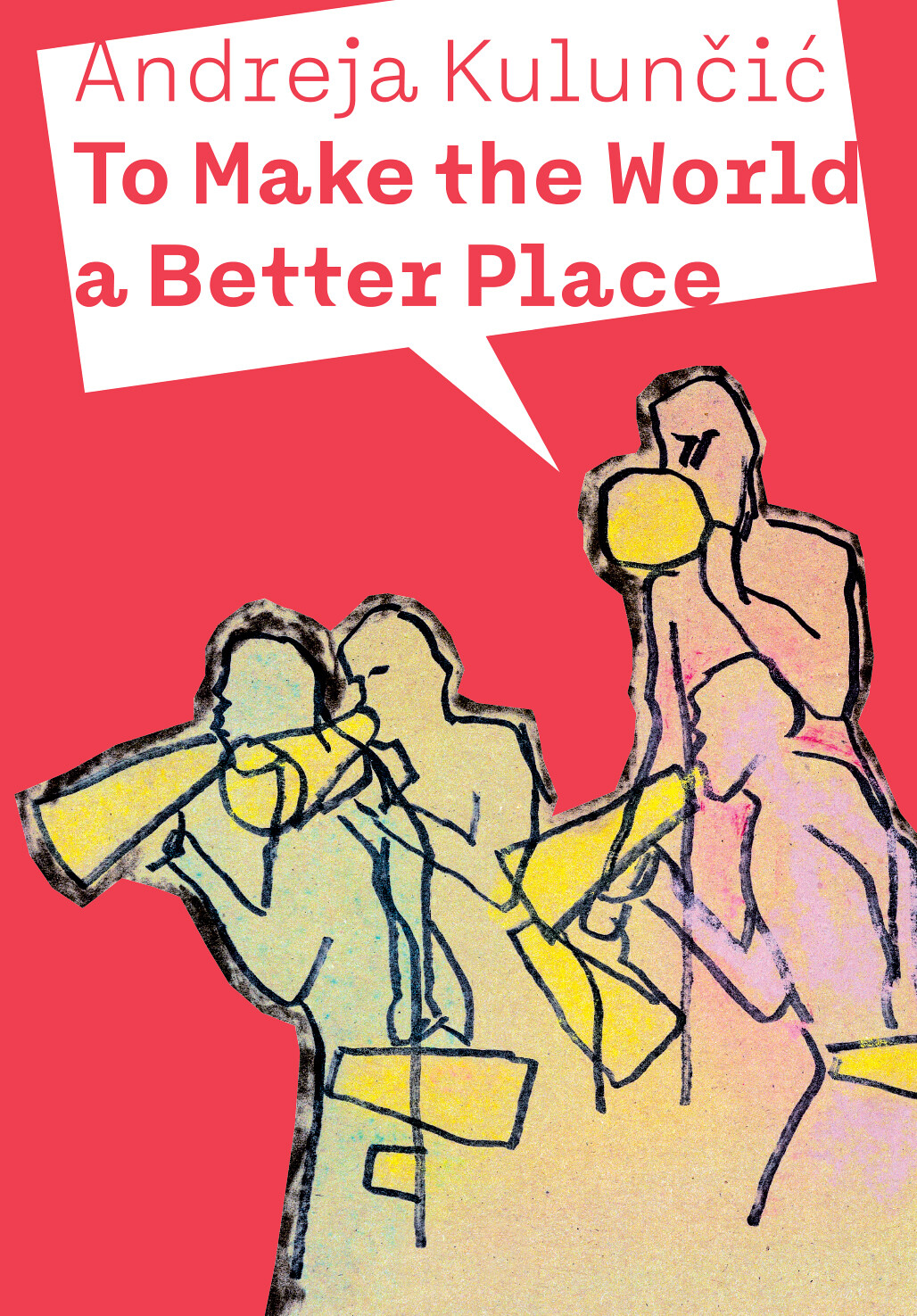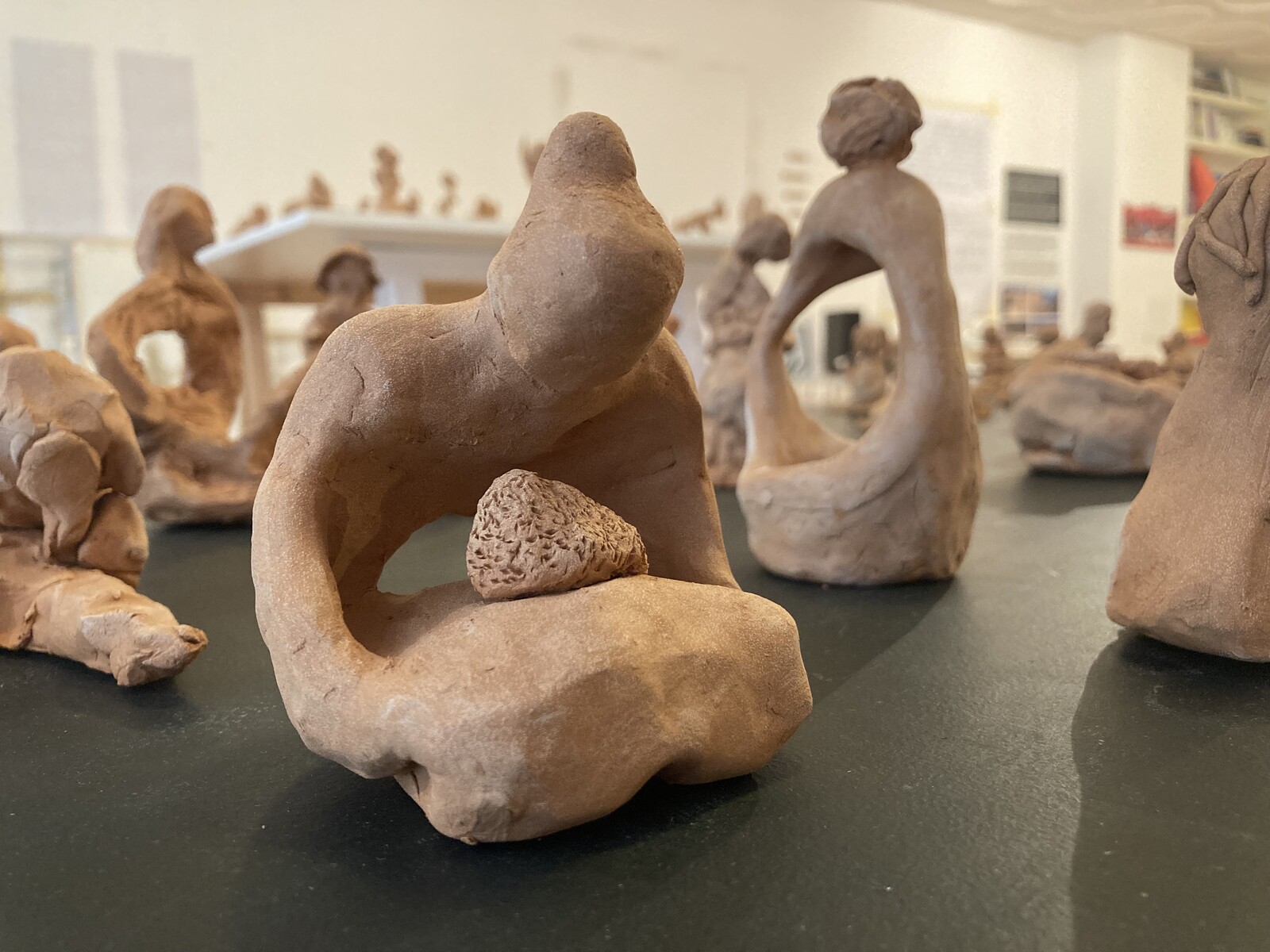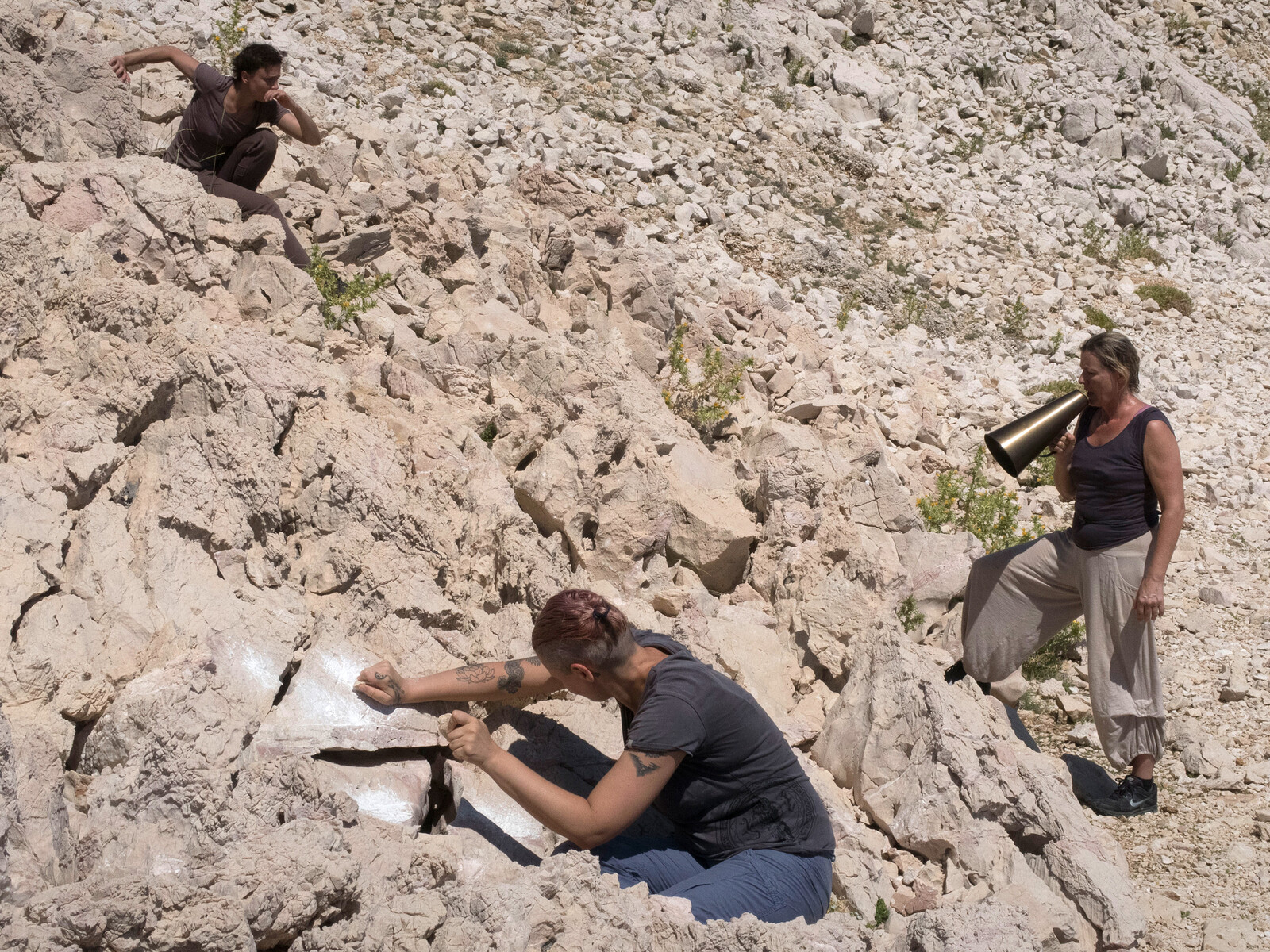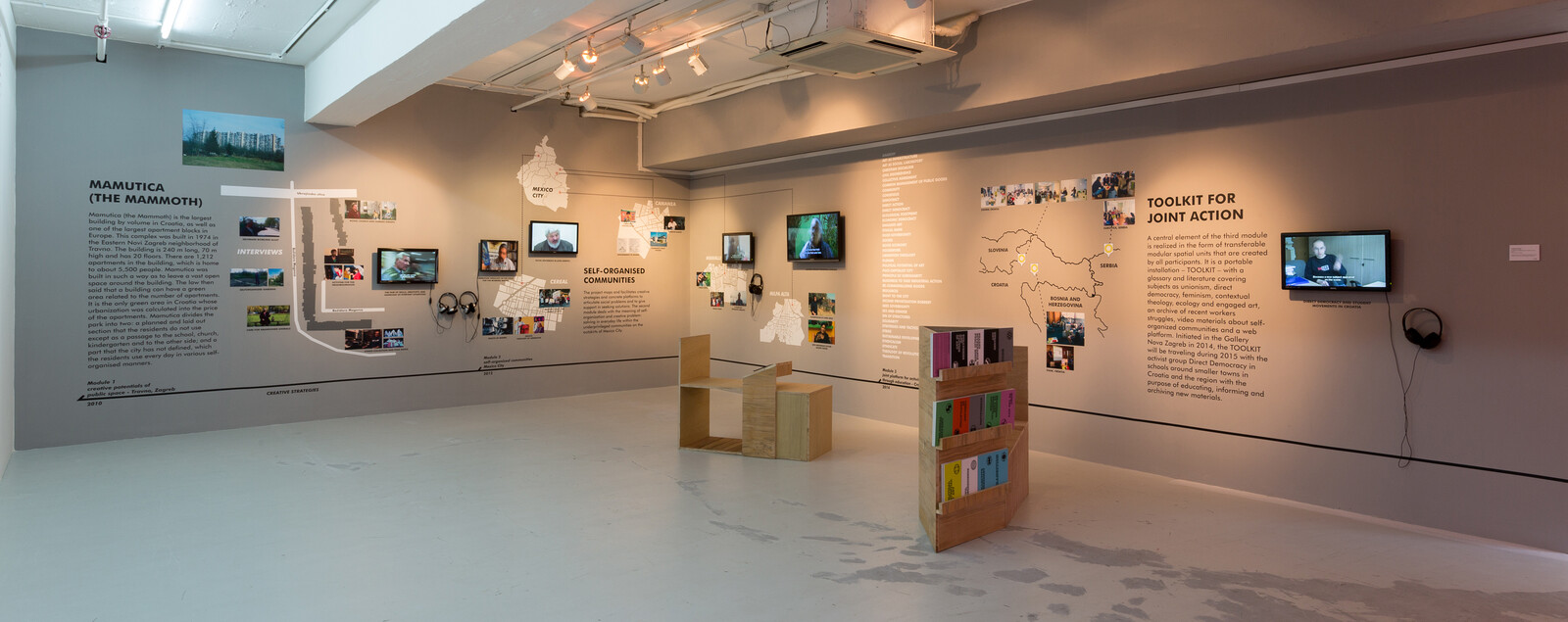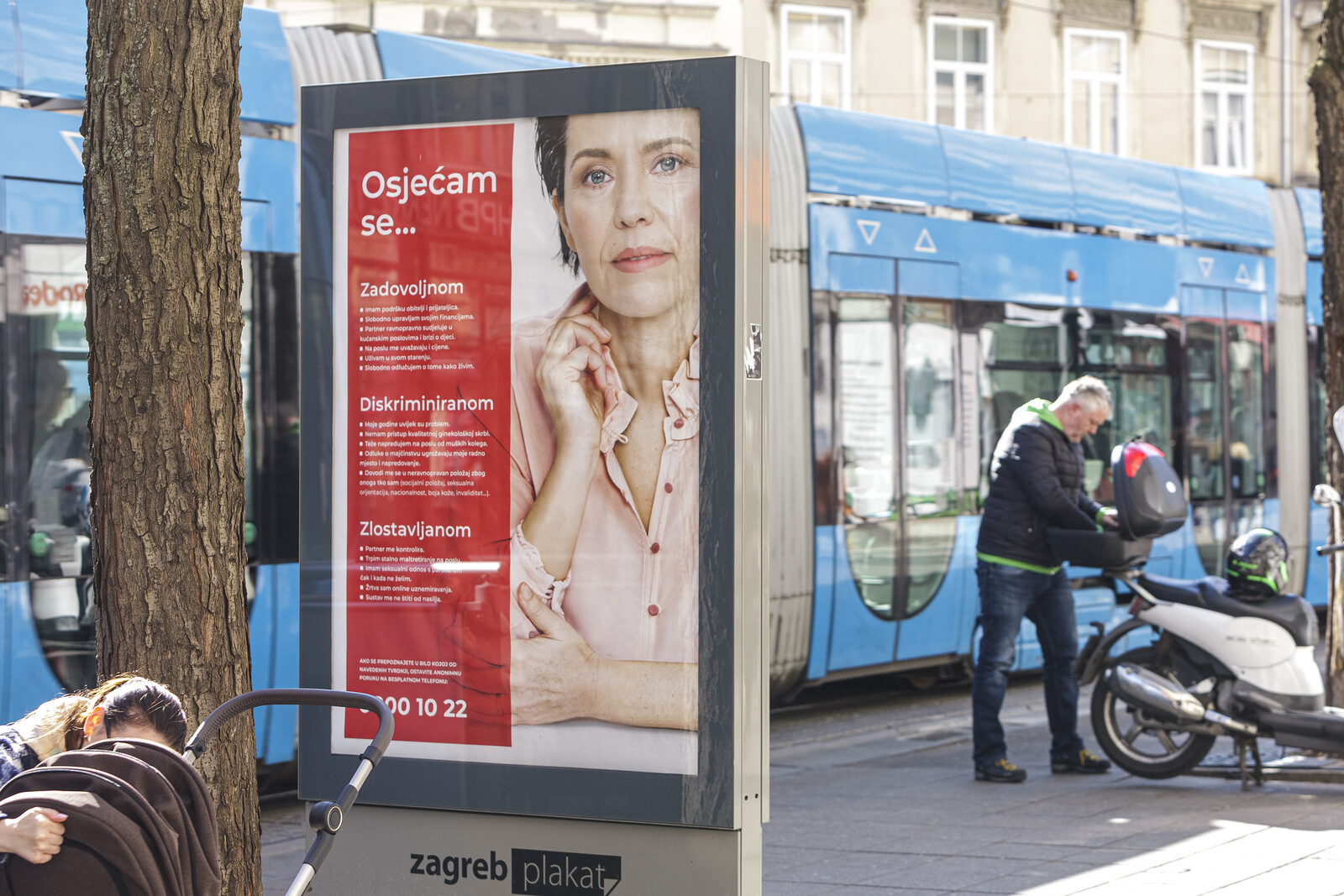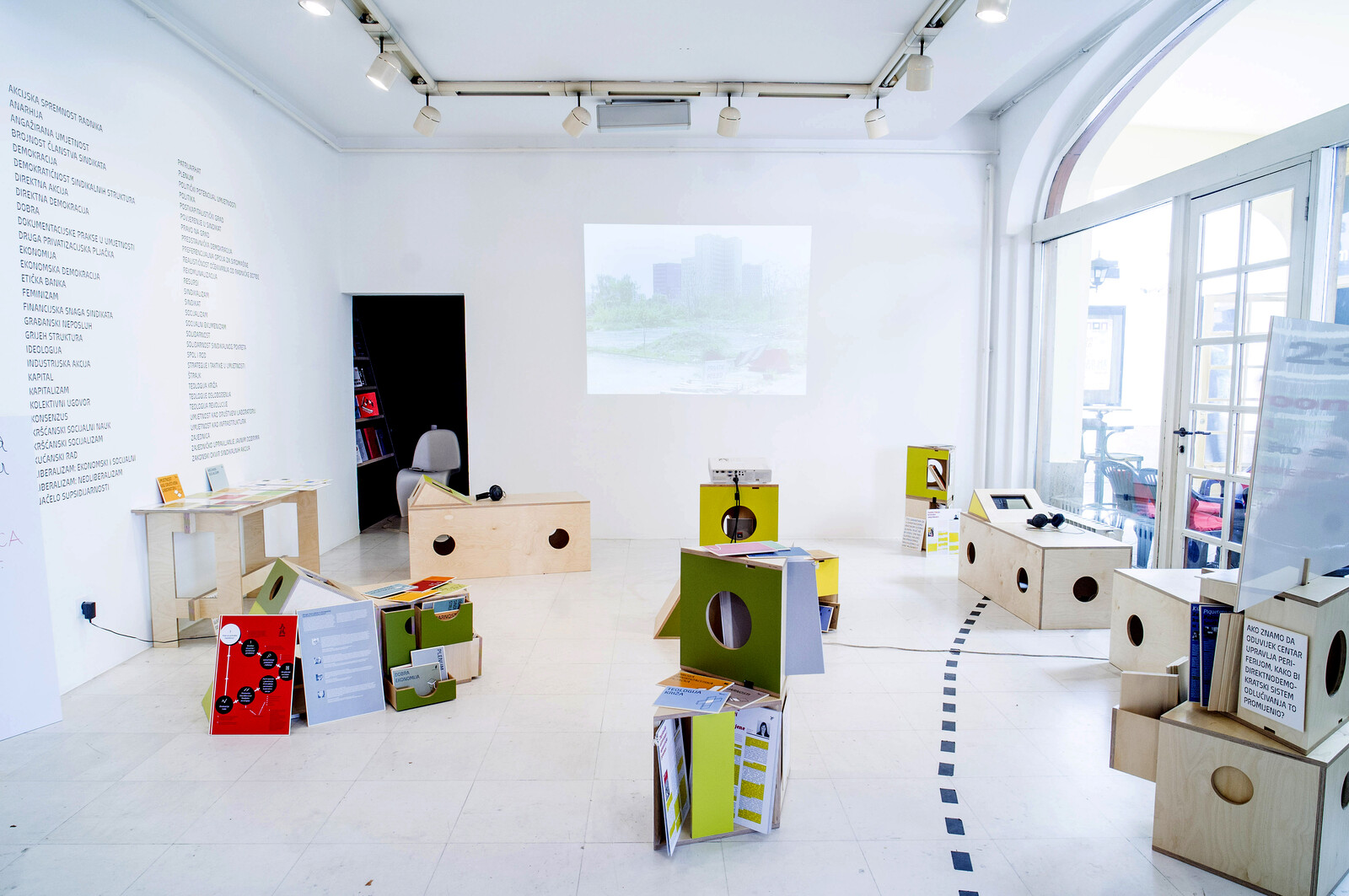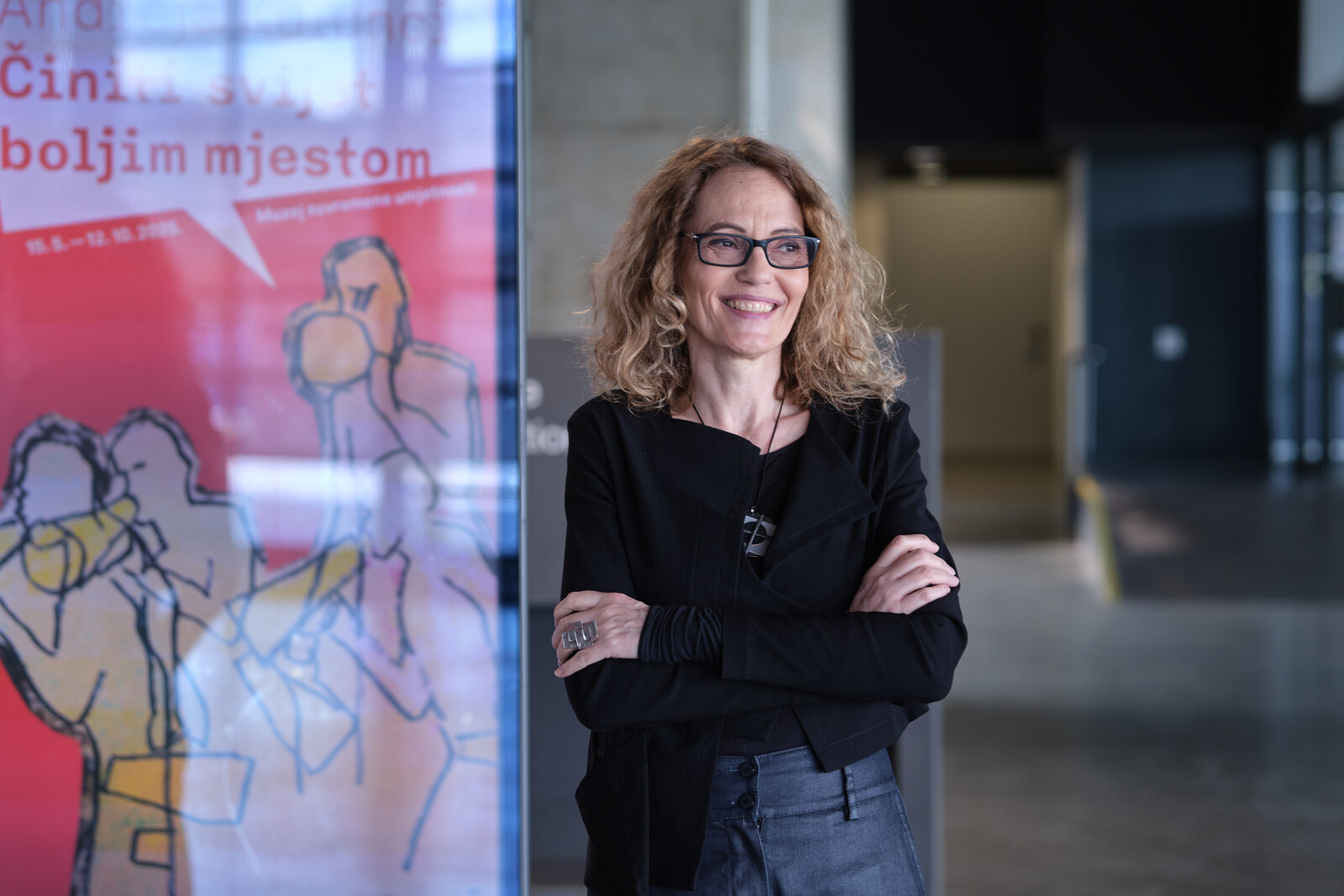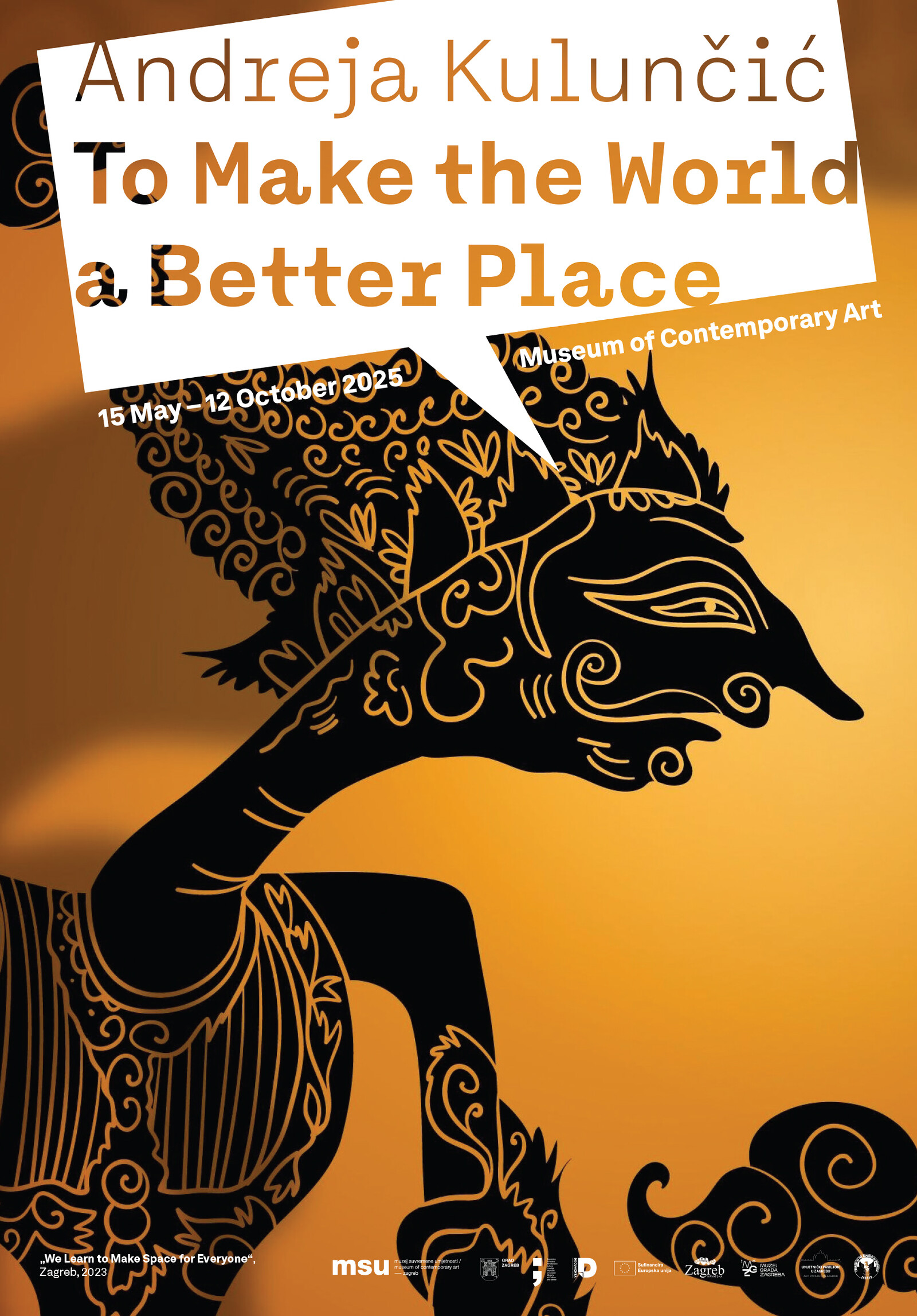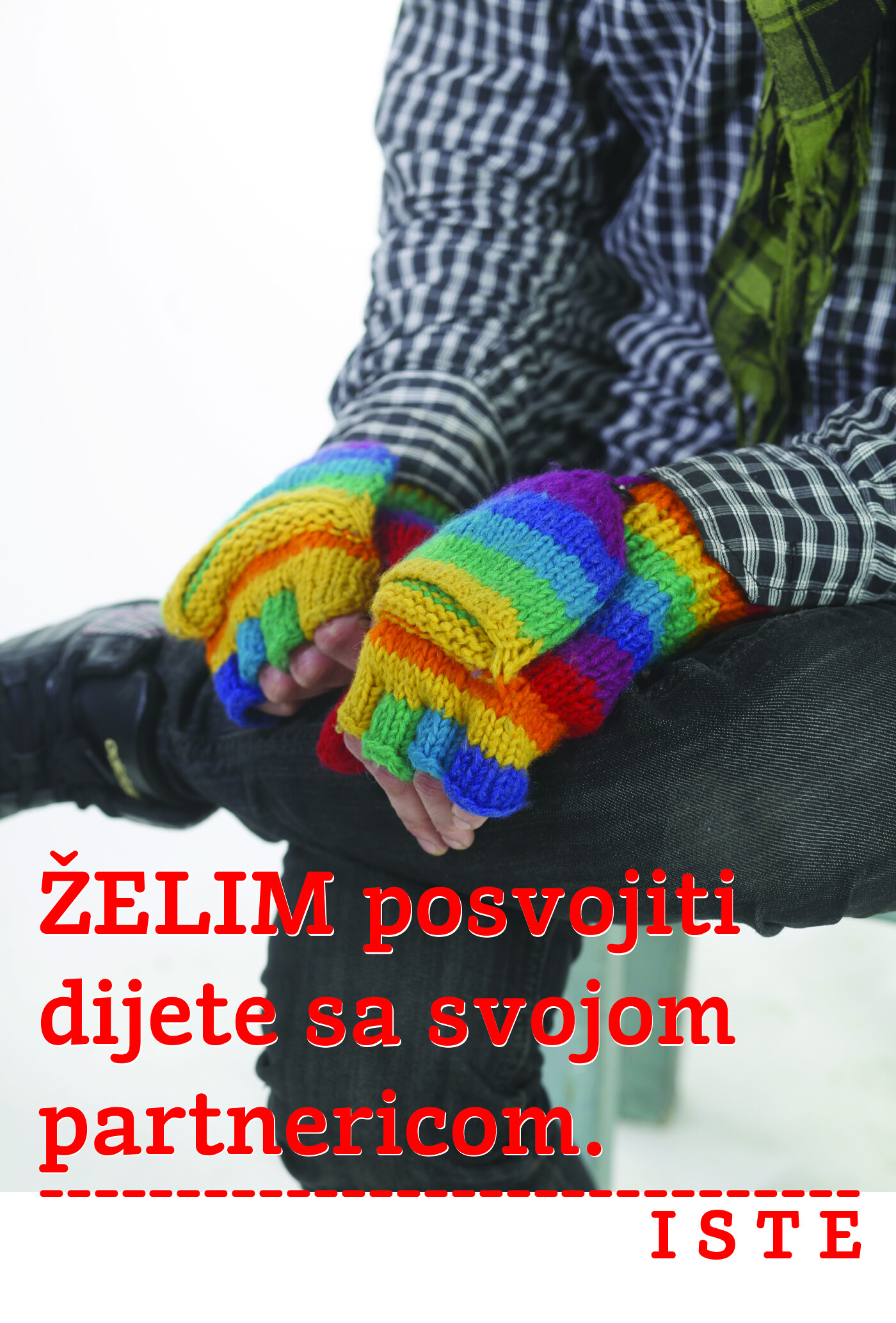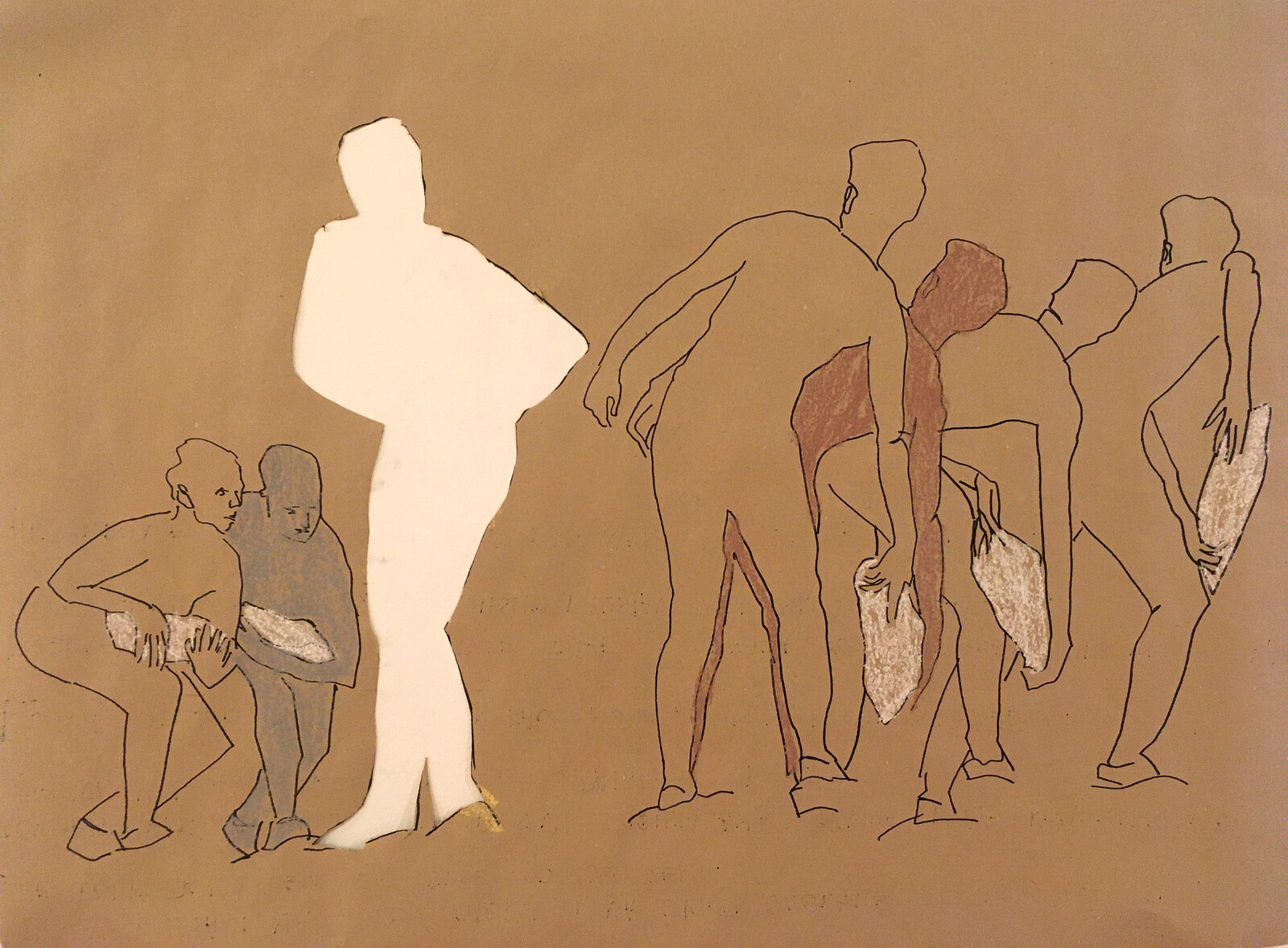To Make the World a Better Place
May 15–October 12, 2025
Av. Dubrovnik 17
HR-10000 Zagreb
Croatia
Hours: Tuesday–Friday 11am–7pm,
Saturday–Sunday 11am–6pm
T +385 1 6052 700
msu@msu.hr
Visual artist Andreja Kulunčić, whose work is one of the key oeuvres of socially engaged artistic practice in Croatia, presents herself for the first time with an all-encompassing solo exhibition that brings an overview of her artistic activity from the 1990s to the present day. The basis of the exhibition is the research and analysis of the potential of contemporary socially engaged visual artistic practice in changing the existing social situation, i.e., the artist’s statement that socially engaged art “makes the world a better place” through its doing. In her artistic practice, Andreja Kulunčić indicates the social injustices, identifies them, studies their causes, and examines the possible manners of resistance. Her art is not only a reflection of reality, but also a tool for change, which stimulates the audience into critical thinking and active participation.
The exhibition setup is structured in five thematic units: feminism, trauma, migration, self-organisation, and structural analysis of the artist’s methodology. Through these units, new work is presented, based on the curatorial research of the artist’s artistic activity and the re-examination of the function and form of a solo (retrospective) museum exhibition as a cultural agent—the propeller and initiator of change.
By exploring the diversities of her oeuvre, the artist expanded with the aforementioned collaboration her hitherto research with issues introduced within engaged social artistic practice according to the questions of representation, marginal activity, collaborative practices, the aesthetic act, etc. In other words, by investing her practice into the experiment, Andreja Kulunčić establishes a wide basis for multilayered research of socially engaged art, its possible reflections and extensions, as well as the social phenomena, perceived from different perspectives.
In her works, visual artist Andreja Kulunčić (b. 1968) examines the different aspects of social relationships and social practice, with an interest in socially engaged topics, interaction with different audiences, and collaboration on collective projects. By establishing her interdisciplinary networks, her artistic work becomes research, a process of collaboration, co-creation, and self-organisation. She often invites the audience to actively participate and includes them in the “completion” of her works. The transdisciplinary approach, in which artistic skills are supplemented with those from other fields, is an important element of her practice. Andreja Kulunčić’s works are almost always made in collaboration with experts from different disciplines, including sociology, anthropology, psychology, design, programming, etc. In her projects, she processes the symptoms of contemporary society, from xenophobia to depression, with special emphasis on the pressing issues of transitional and post-transitional environments. She frequently collaborates with marginalised groups and creates different platforms of expression and collaboration. She often transforms a gallery into a space for workshops and socialising, a kind of social laboratory whose results are felt in everyday life. By operating in marginal areas and by directing her critique towards central values of imaginary institutions of the globalising societies and the divisions conditioned by them, her artistic production suggests the ability of art to provide polemic foundations for the examination and unfolding of certain institutional forms and for constructing new ones.
Exhibition curator: Martina Munivrana
Concept authors: Andreja Kulunčić and Martina Munivrana
Curatorial research and collaboration: Irena Bekić (Croatia), Amanda de la Garza Mata (Mexico), Anca Verona Mihuleţ (Romania / South Korea), and Katharina Schlieben (Germany)
Design: Dejan Dragosavac Ruta
Exhibition architecture: Antun Sevšek and Damir Gamulin
Workshops and discursive programme coordinator: Renata Filčić
Producer: Morana Matković
The exhibition is actualised in collaboration with institutions and organisations in individual projects: Zagreb City Museum, Art Pavilion in Zagreb Documenta – Centre for Dealing with the Past and MAPA Association.
The exhibition has been made possible with support from the Zagreb City Office for Culture and the Ministry of Culture and Media of the Republic of Croatia.
